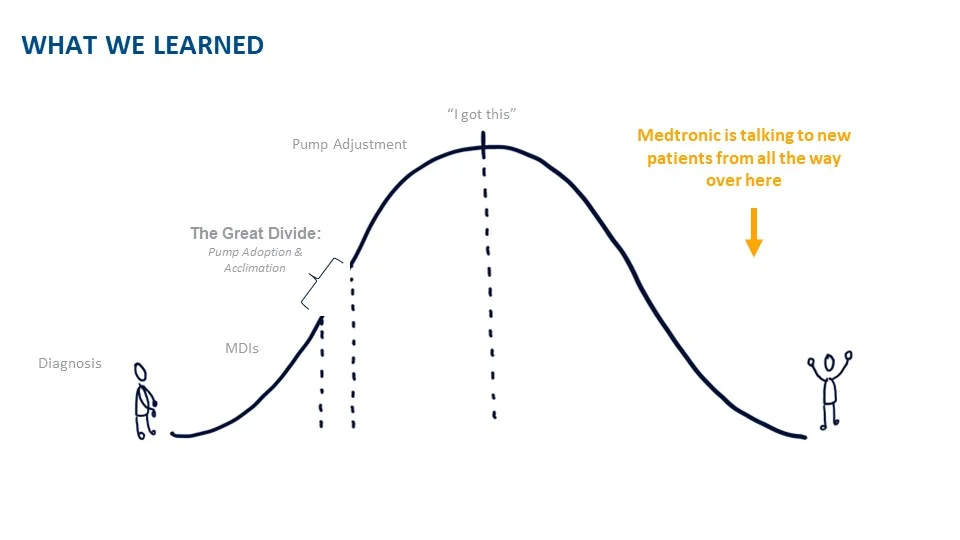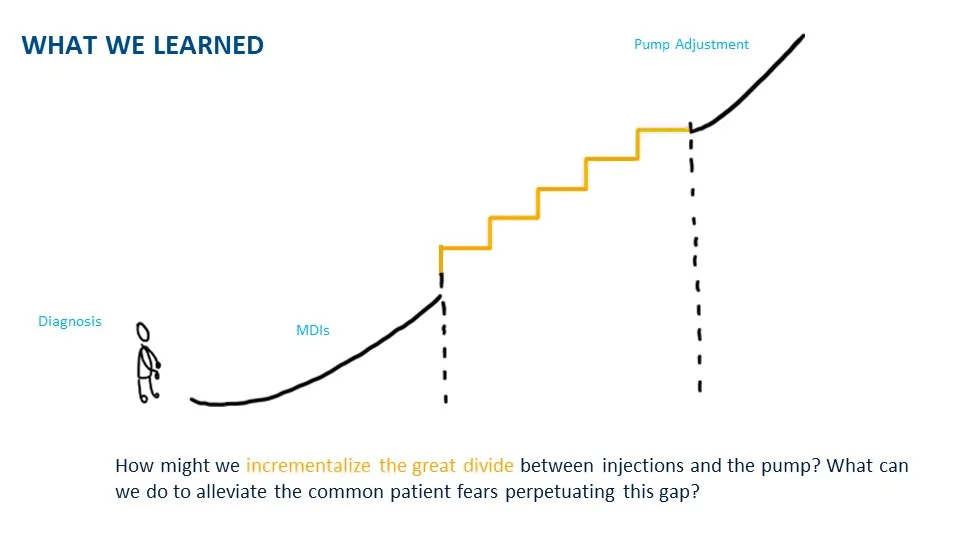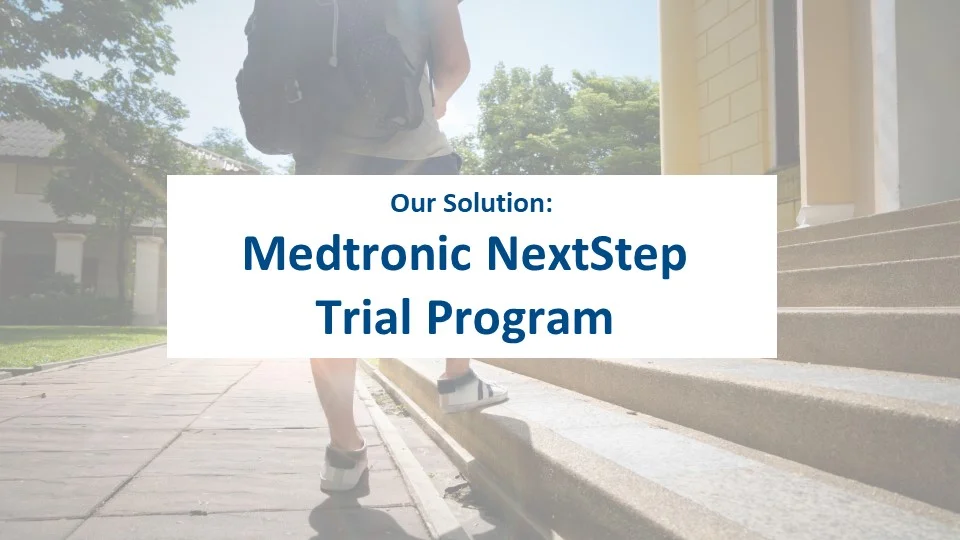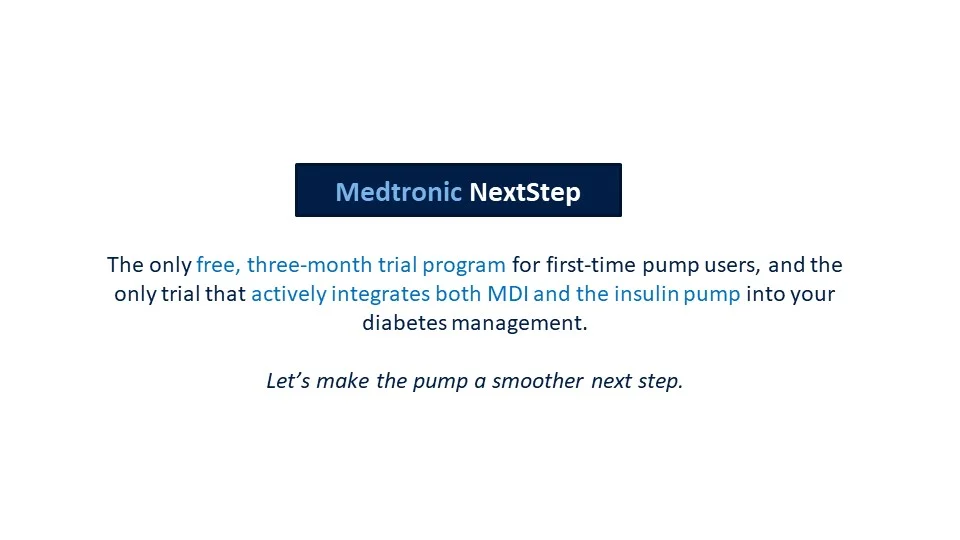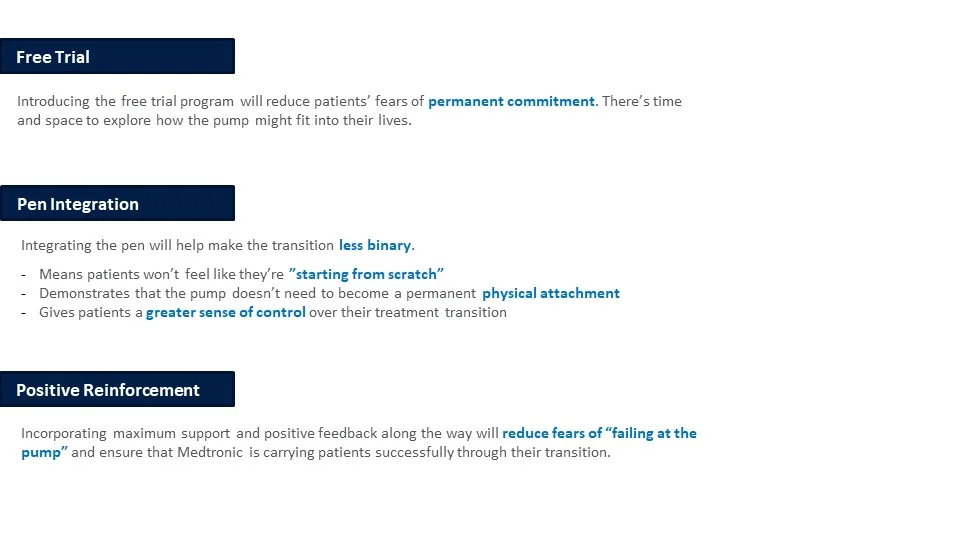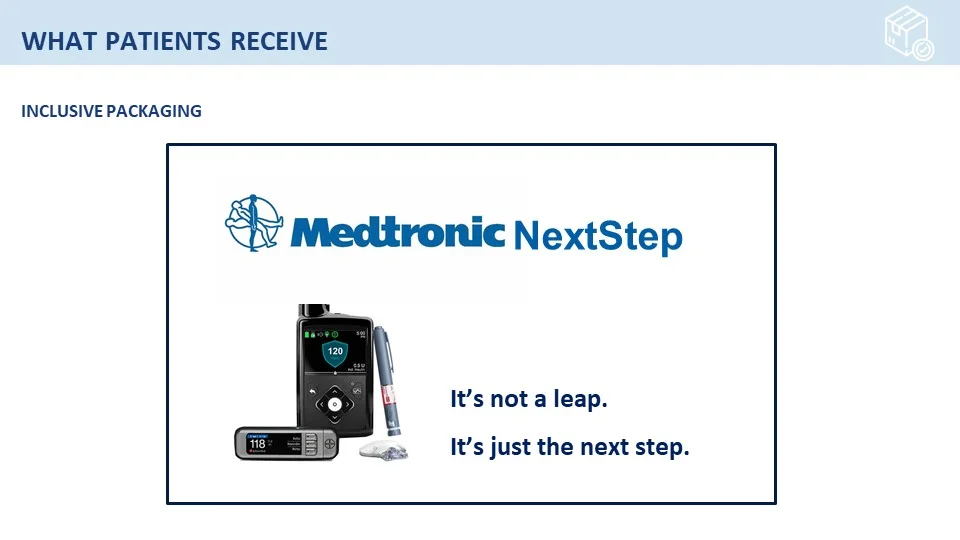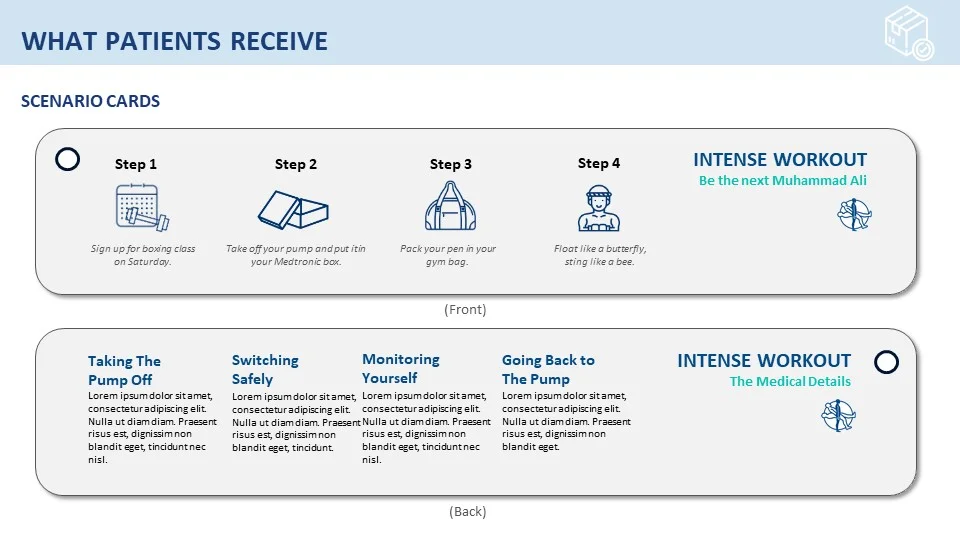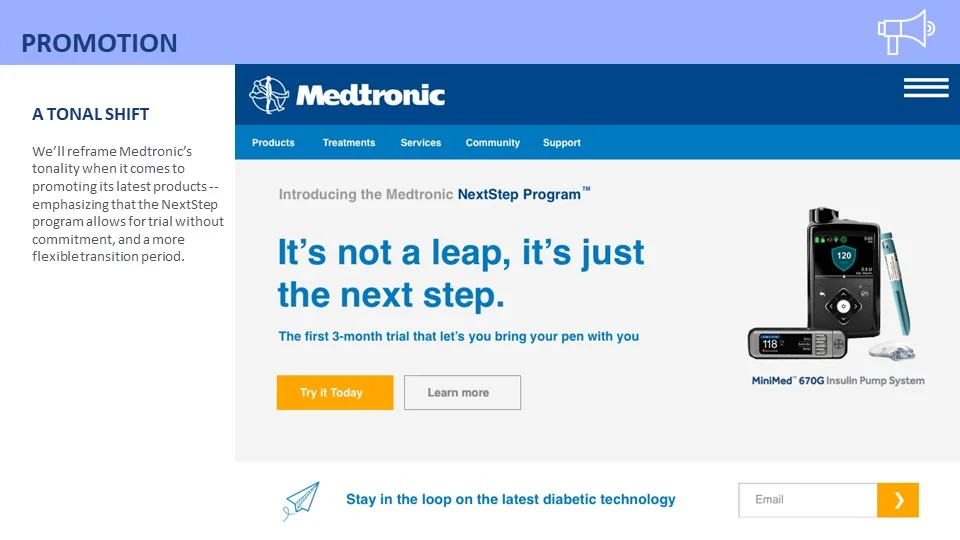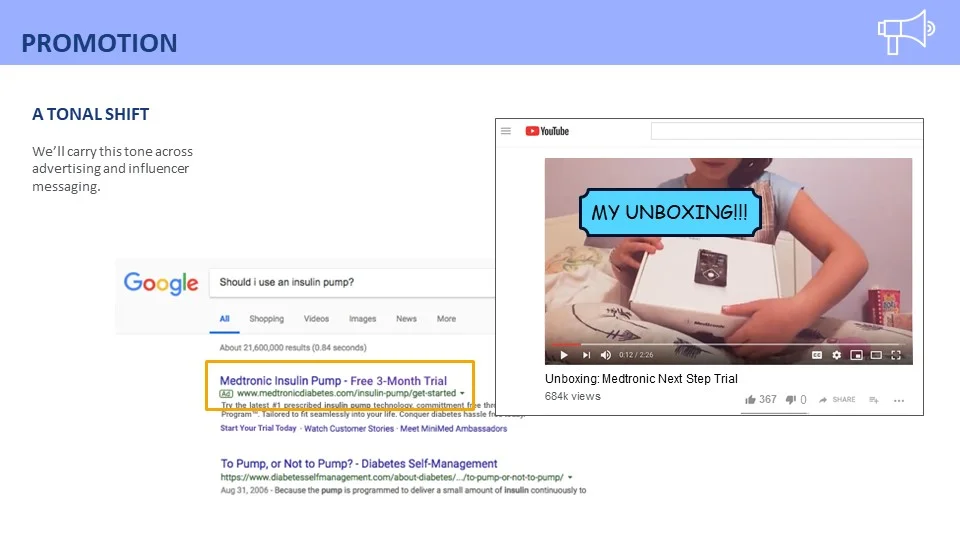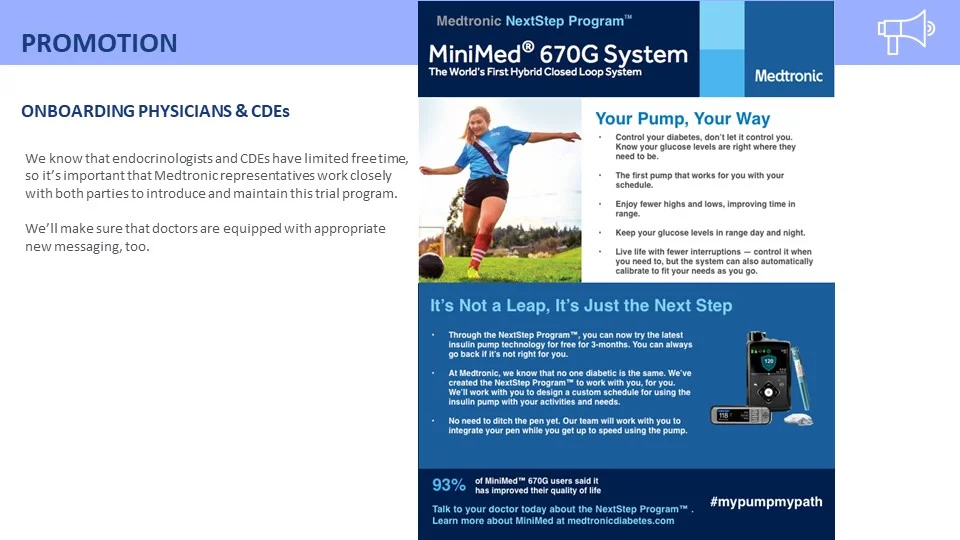Kellogg Design Challenge
Hosted by the Innovation & Design Association (IDEA) and Medtronic, the world’s largest medical device company, the Kellogg Design Challenge asked cross-functional teams to explore how to alleviate the behavioral and psychological barriers to insulin pump adoption for Type 1 Diabetes patients.
Our team was unanimously selected 1st place out of 36 teams from 8 top business schools for prototyping a solution grounded in desirability (for the patient), viability (for the market), and feasibility (for the business). Following the challenge, we were invited out to corporate headquarters in LA to present our findings to the Medtronic executive team during their annual board of directors meeting.
Our Process
Because none of our team members had been personally affected by Type 1 Diabetes, we quickly realized that we needed to get outside the Kellogg walls, and into the community to learn how Diabetes patients live with and treat this disease on a daily basis. We leveraged our personal networks to connect with both medical professionals and customers of Type 1 Diabetes therapy products.
Design Research
Our team conducted 23 ethnographic interviews with Type 1 Diabetes patients, doctors, parents, care takers, family members, and friends. We explored the patient journey from diagnosis, to insulin therapy adjustment, to a sustainable treatment plan and incorporated all perspectives into our findings.
As secondary research, we explored dozens of medical journals, conducted social listening exercises, signed up for Diabetes care blogs, harvested competitor product reviews, and watched YouTube influencer product tutorials.
Mapping the Patient Journey
Based on our research, we learned that the typical transition period from Multiple Daily Injections to Insulin Pump Adjustment often takes 2-3 months. During this period, patients often act in a manner that is counter to their therapy plan.
As we dug deeper into this observation, we found that many patients are unsuccessful in adopting insulin pump therapy because they begin acting in fear: fear of losing control of their disease, fear of failure, fear of starting over, and the fear of physical commitment.
From Insights to action
Once we understood that fear was the primary driver behind the behaviors that prevented most insulin pump adoption in recently diagnosed Type 1 Diabetes Patient's therapy, we conducted a market analysis to evaluate Medtronic’s (and their competitors) messaging to new Type 1 Diabetes patients.
What we found is that Medtronic’s messaging is targeted solely at their current customers, who are by definition already insulin pump users. There is absolutely no messaging targeted at potential customers — Multiple Daily Injection users.
We found this to be a huge gap in their strategy, and thus we re-framed the problem statement from “How might we alleviate the behavioral and psychological barriers to insulin pump adoption for Type 1 Diabetes patients” to, “How might we incrementalize the great divide between injections and the pump?” and, “What can we do to alleviate common patient fears perpetuating this gap?”






